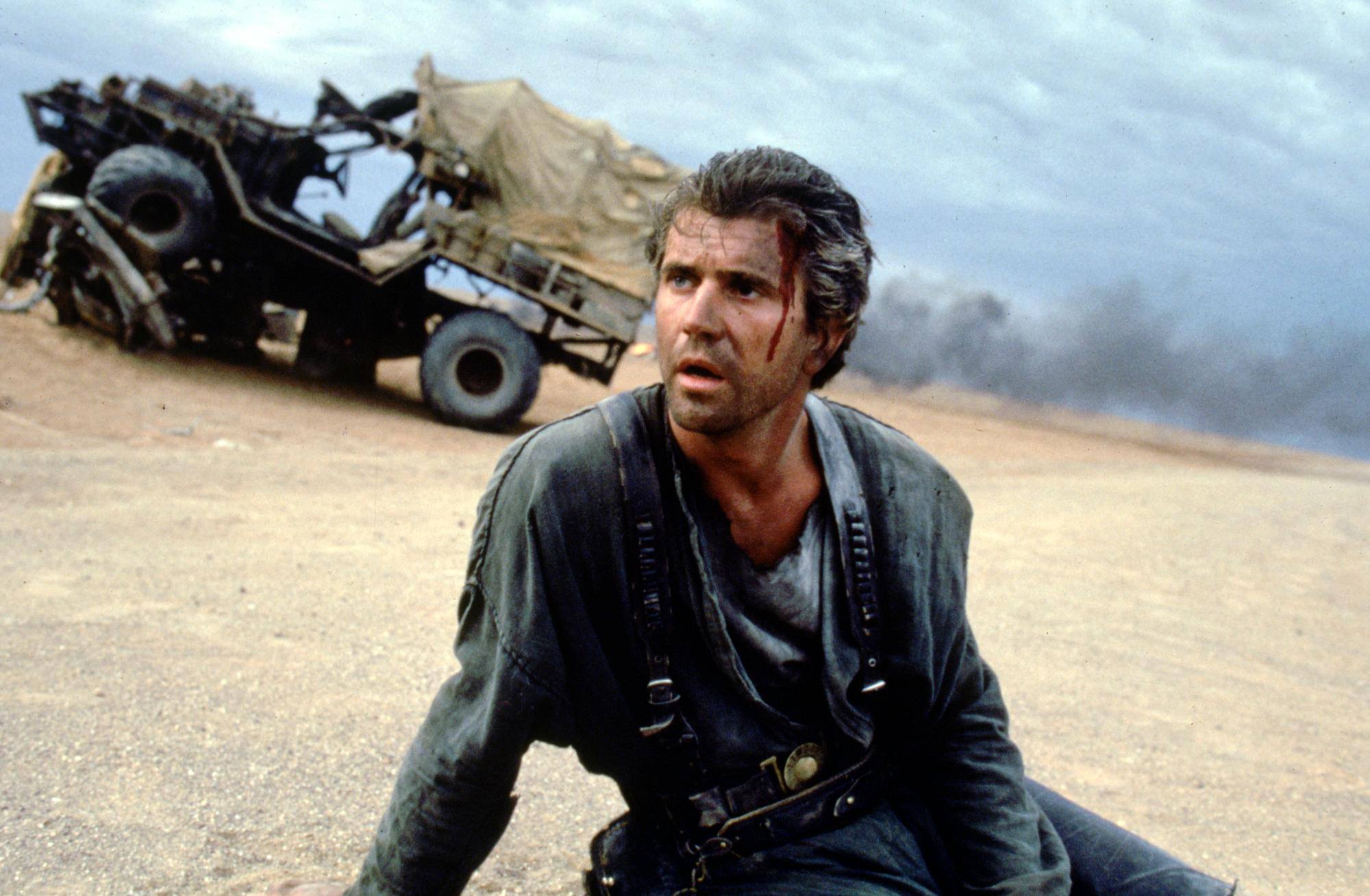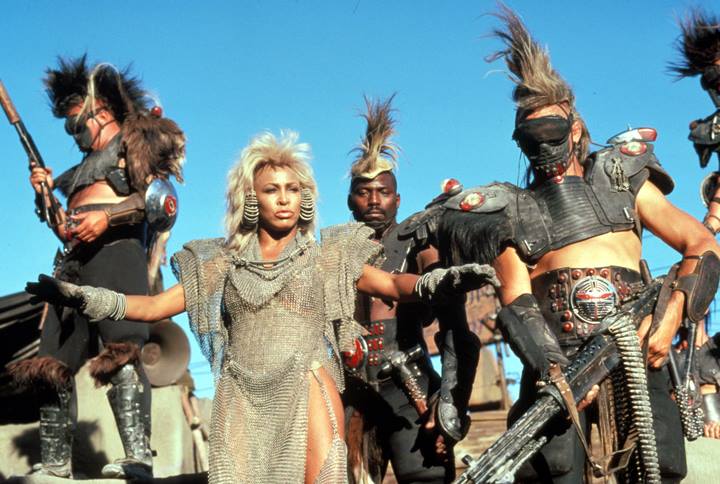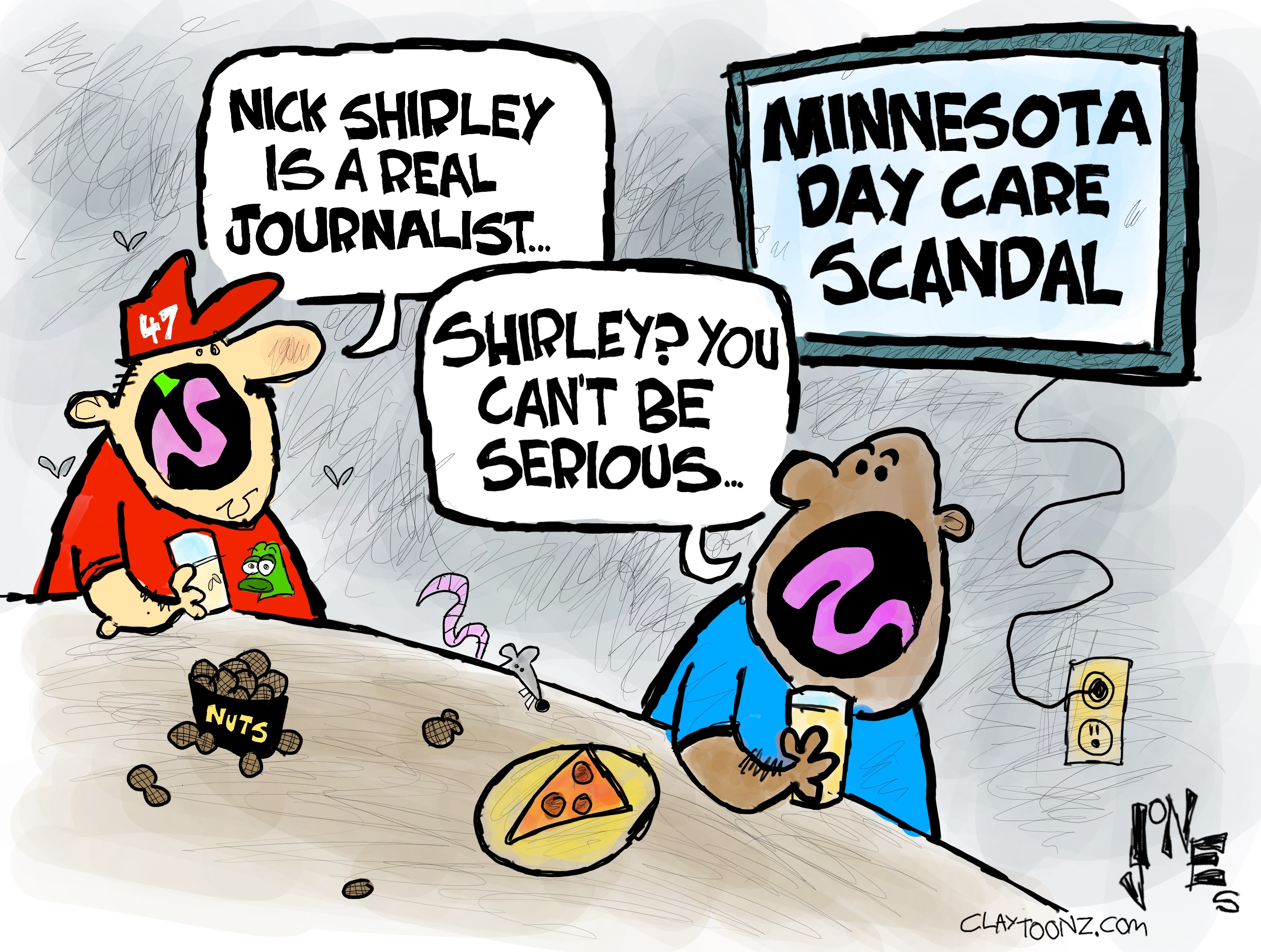Mad Max: Fury Road's twisty, 17-year journey to the big screen
Why has it been decades since a Mad Max movie hit theaters? It wasn't for lack of trying...

It's been nearly 30 years since the release of the last Mad Max movie, but the long, long wait has apparently been worth it.
Reviews for today's Mad Max: Fury Road — a quasi-reboot starring Tom Hardy in the title role, as a stoic badass fighting his way through the post-apocalypse — haven't just been good. They've been rapturous. At the time of this writing, Fury Road has been positively reviewed a staggering 99 percent of the time on aggregator Rotten Tomatoes — a number that beats every single movie that has won the Best Picture Oscar in the past 25 years.
Despite the long gap between releases (and the personal troubles of original star Mel Gibson), the Mad Max trilogy has retained a devoted following — so why did Fury Road take so long to hit theaters?
The Week
Escape your echo chamber. Get the facts behind the news, plus analysis from multiple perspectives.

Sign up for The Week's Free Newsletters
From our morning news briefing to a weekly Good News Newsletter, get the best of The Week delivered directly to your inbox.
From our morning news briefing to a weekly Good News Newsletter, get the best of The Week delivered directly to your inbox.
As it turns out, it wasn't for lack of trying.
Following the release of the Mad Max trilogy, director George Miller helmed The Witches of Eastwick and Lorenzo's Oil, then took a hard left into children's films with Babe: Pig in the City and the Happy Feet franchise. But despite this unlikely career evolution, a browse through decades of Hollywood history reveals that Miller has been ready to return to Mad Max for at least 20 years. He just needed everything else to fall into place first.
The third Mad Max movie — 1985's Beyond Thunderdome — is commonly dismissed by both critics and fans as the weakest and most diluted entry in the series. (The PG-13 rating didn't help.) But a decade after Beyond Thunderdome hit theaters, Warner Bros. began developing a Mad Max TV series that would have continued down that relatively bloodless road. "While we are being faithful to the original movie premise in our television adaptation, we are sensitive to issues of violence," said a Warner Bros. representative in a 1995 interview with Variety. "The majority of confrontations in Mad Max will be confined to machine vs. machine […] as opposed to violence against humans."
In today's premium TV wonderland, where high budgets and explicit content abound, a Mad Max TV series could be terrific — but in 1995, on primetime television, the idea seemed flawed at best. Someone on the inside must have realized that; the project quietly disappeared, and Miller began to focus on a fourth Mad Max movie sometime in the late '90s.
A free daily email with the biggest news stories of the day – and the best features from TheWeek.com

The first challenge came down to locking in his leading man. Mel Gibson had always sounded ambivalent about starring in Mad Max 4. In 2001, Ain't It Cool News cited rumors that a sequel would move away from Max Rockatansky to focus on an older version of the boomerang-toting Feral Kid from The Road Warrior. But as Mad Max 4 entered pre-production 14 years ago, Gibson said he was game to play Max one last time.
Unfortunately, the film's start date was repeatedly derailed for financial reasons stemming from 9/11; as the American dollar collapsed against the Australian dollar, shooting in the outback became a budgetary impossibility. By 2003, Mad Max 4 was set to film in Namibia, but again, global turmoil got in the way; the location was deemed a security risk, and the project was shelved once again. (There were also rumblings that Miller's interest in the project was derailed by the possibility of helming a movie based on D.C. Comics' Justice League.) By early 2006, Mel Gibson was distancing himself from the new Mad Max, calling himself "a little long in the tooth" to reprise the roles that defined his early career, like Max Rockatansky and Lethal Weapon's Martin Riggs.
With so many logistical problems related to the filming of Mad Max 4, it's hard to blame Miller for his next proposed evolution of the franchise: a 3D animated movie partially based on his script for Mad Max 4. It's a path that had been taken by several other expensive sci-fi franchises, including The Matrix and The Chronicles of Riddick, but unlike those direct-to-DVD installments, Miller intended his hard-R animated Mad Max to get a full theatrical release.
Miller's cross-platform plan was ambitious; in addition to the film, which would have drawn inspiration from Japanese anime, he planned an action-adventure video game tie-in. "We’re in the early stages writing and designing," he told MTV News. "A really good game you need two and half years. And for good anime you need two years." But the plan happened to dovetail with Mel Gibson's July 2006 drunk driving arrest, in which he famously made a series of damning anti-Semitic comments. When asked if Gibson would be a part of the Mad Max revival, Miller politely demurred, saying he planned to go "a different route."
But as quickly as Miller converted Mad Max 4 into an animated movie, he turned it right back again. Just three months after the news broke, Ain't It Cool News reported that Miller had changed his mind again, planning to shoot Mad Max 4 as a live-action film in Australia — and that the cars required for the project had already been built. Though the animated film was canceled, the video game — bound, according to an inside source, for the Playstation 3 — was still a go.

That led, inevitably to the same question that had dogged Mad Max 4 from the beginning: Would Mel Gibson be back, or not? In the end, it was apparently Miller who decided to replace Gibson in the title role. "By the time we got there, not only had Mel hit all the turbulence in his life, but this is not a Mad Max in which he’s an old warrior," said Miller in a recent interview with the New York Post. "He’s meant to be that same contemporary warrior. I guess in the same way that James Bond had been played by various people, it was time to hand over the mantle." (Gibson's surprise appearance at the Fury Road premiere last week presumably indicates that there weren't any hard feelings.)
Who could take Gibson's place? Miller recently confirmed a longstanding rumor that Heath Ledger was slated to star in an early version of the fourth Mad Max movie before his 2008 death. Sam Worthington was another widely reported favorite. Eric Bana expressed cautious, ambivalent interest. In 2009, Jeremy Renner said he was "fighting" for a role in Mad Max — presumably the lead — and went as far as meeting with with Miller and filming a screen test. In the end, Miller settled on another actor who repeatedly turned up in rumors about Mad Max 4: Tom Hardy, who reluctantly confirmed his involvement in 2010. Mad Max: Fury Road began shooting in Namibia in 2012, a full nine years after its original Namibia shoot was derailed. Despite rumblings of an on-set feud between Tom Hardy and Charlize Theron, it wrapped by the end of the year. The video game — now set for the Playstation 4 and the Xbox One — will arrive in September.
And here we are, 30 years after Beyond Thunderdome, with a new Mad Max in theaters. If Fury Road is a hit, Miller has already planned two sequels. If they end up falling victim to the same troubled timeline that separated Beyond Thunderdome and Fury Road, we'll be getting those next two installments in 2045 and 2075. But whatever the future of the franchise, Mad Max has overcome staggeringly long odds from the very beginning, when an untested Aussie director and an unknown actor turned a $300,000 B-movie into a $100 million hit. Now that Hollywood has their claws back into Mad Max, it's hard to imagine him fading away again anytime soon.
Scott Meslow is the entertainment editor for TheWeek.com. He has written about film and television at publications including The Atlantic, POLITICO Magazine, and Vulture.
-
 Political cartoons for January 4
Political cartoons for January 4Cartoons Sunday's political cartoons include a resolution to learn a new language, and new names in Hades and on battleships
-
 The ultimate films of 2025 by genre
The ultimate films of 2025 by genreThe Week Recommends From comedies to thrillers, documentaries to animations, 2025 featured some unforgettable film moments
-
 Political cartoons for January 3
Political cartoons for January 3Cartoons Saturday's political cartoons include citizen journalists, self-reflective AI, and Donald Trump's transparency
